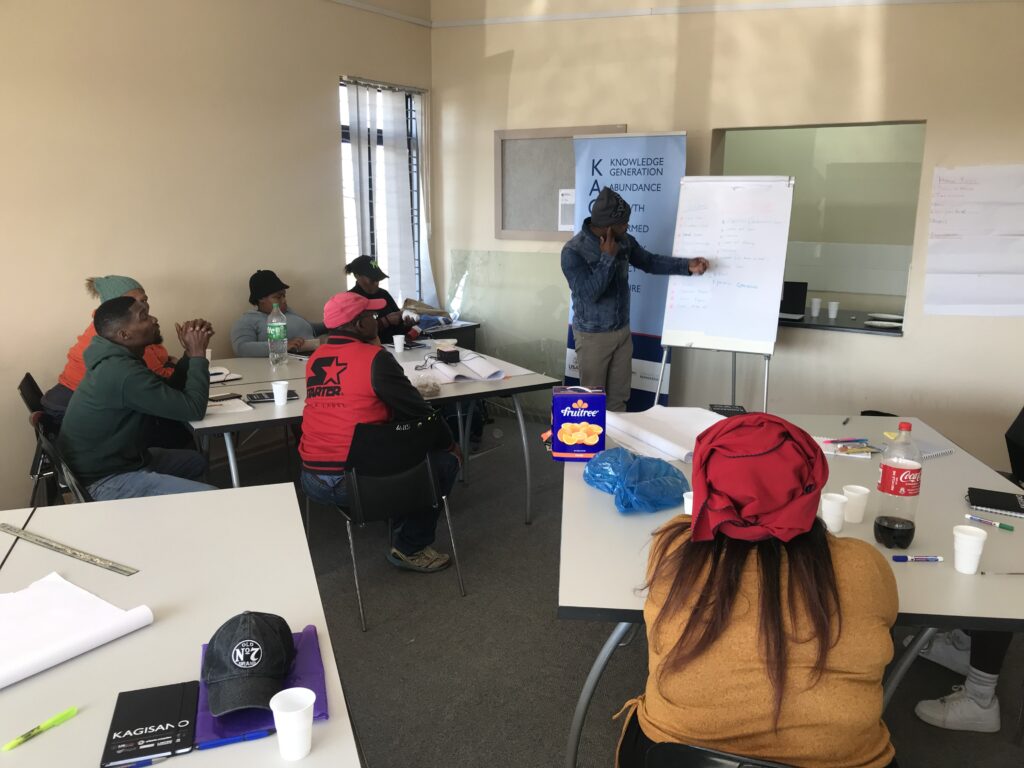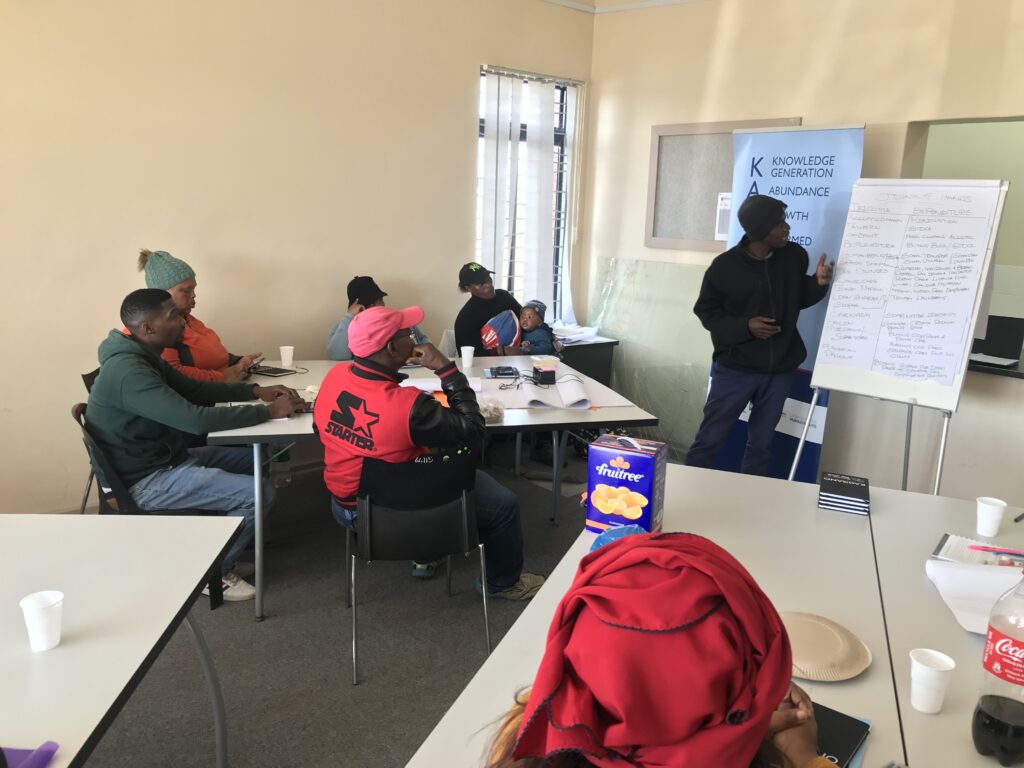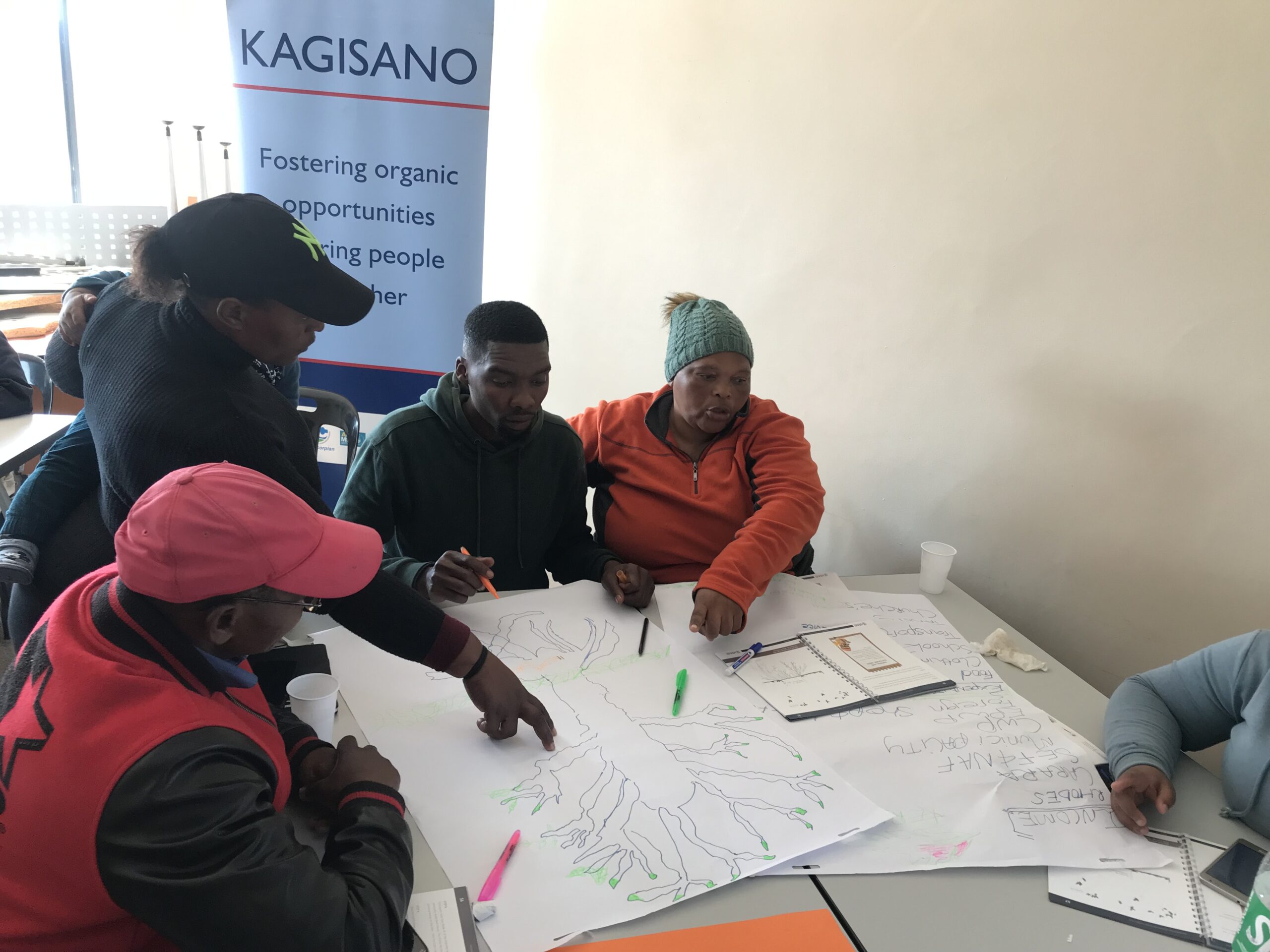By Sivuyile Sitole
Participatory Rural Appraisal (PRA) is a strong tool that many development practitioners around the world use to assess the life and heartbeat of communities. PRA is a collection of techniques and approaches that prioritize local insights, focusing on incorporating invaluable knowledge into the design and execution of development initiatives, primarily in rural settings. PRA has been a tool that the Kagisano programme has relied on and used in its sites across the Western Cape, Limpopo and KwaZulu Natal. On August 3-4, Afesis held a similar workshop on PRA in Makhanda, Eastern Cape, involving the Ward 2 Executive Committee and the Youth Forum Executive members.
During the workshop, committee members participated in different activities including a Transect Walk – a method used to observe, interact, and gain a spatial understanding of an area. This activity enabled executive committee members to recognize various assets, key stakeholders, and distinct characteristics of their ward. Some of the significant assets they pinpointed included a clinic, retirement home, library, several businesses, and available plots of land.
A critical observation from the Transect Walk was the underutilisation of many public assets. Several factors contribute to this inefficiency: limited resources, vandalised infrastructure, accessibility issues, and lack of maintenance services, amongst others. Disturbingly, properties that were vandalised or left unused often became hotspots for drug-related activities and gang violence.
However, the workshop was not just about identifying problems but also brainstorming solutions. One innovative idea proposed by participants was repurposing an old police station situated behind the small clinic. By integrating this space, the clinic could expand its capacity, accommodate more staff, and better serve the community.

The PRA workshop was instrumental in enabling the community to recognise their inherent assets and brainstorm ways to leverage them to tackle day-to-day challenges. The process was not only enlightening but also empowering, as it fostered a spirit of self-reliance among community members, encouraging them to create and champion their solutions.
Concluding the training, the Ward 2 committee members emerged with a clear understanding of their community’s assets and formulated strategies to harness them for communal growth. Empowered with knowledge and a sense of ownership, they are now better equipped to proactively analyse, address, and find solutions to their community’s challenges.
Participants acknowledged the PRA activity as they were able to gain a new perspective on the environment around them and see the value of building relationships.

“The PRA activity challenged preconceived notions that community development could only be done by the educated few. PRA shows that everyone can make a difference in the community” – Mr Mcuba, Ward 2 Committee Member.
The Kagisano programme adopts the PRA method, as it stands to allow communities to gain a deeper, more nuanced understanding of the needs, aspirations, and challenges they face. This method emphasizes on local knowledge and enables the direct involvement of community members in gathering and analysing data about their own conditions. This approach ensures that the Kagisano programme is rooted in the lived experiences and priorities of the people we serve.
Consequently, solutions are often more sustainable, contextually relevant, and have a higher likelihood of success. Moreover, the very process of involving community members in decision-making fosters a sense of ownership, empowerment, and accountability, bridging the gap between planners and the grassroots. For Kagisano, employing PRA means not only making informed decisions but also fostering stronger community relations and ensuring that initiatives are truly transformative for those on the ground.
Some participants recommended integrating PRA into the school syllabus. They believed that educating young individuals about their community can instil hope and inspire them to envision ways to contribute positively to their community. “It would remove the ‘I don’t care mentality’ as they would see the value of their community, and the assets present within their community, and this would ultimately make them agents of change”, added Mr Mcuba.
Sivuyile Sitole is a Programme Officer for the Kagisano programme in Makhanda.
